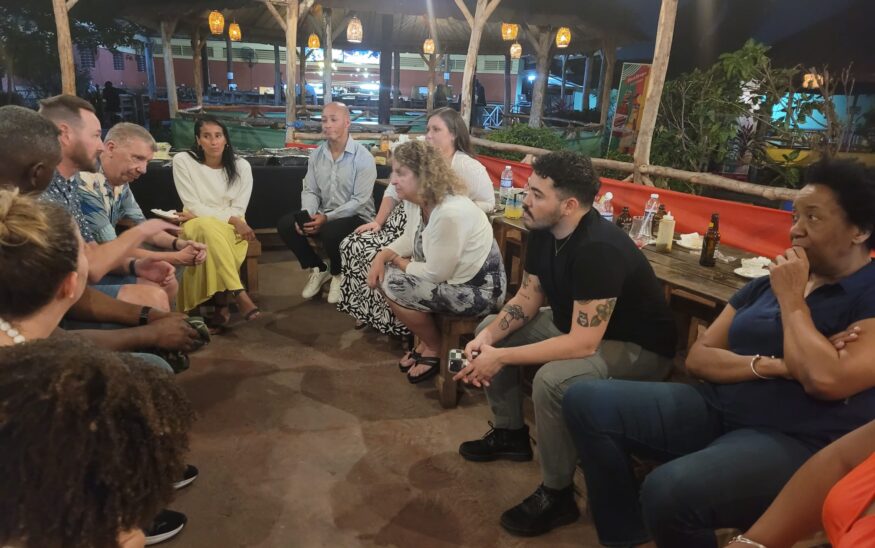- All Stories
- Lehigh Valley entrepreneur travels to Jamaica to mentor…
Lehigh Valley entrepreneur travels to Jamaica to mentor low-income business owners
Stacy Wescoe

This article was originally published by Lehigh Valley Business.com on April 7, 2025
Author: Stacy Wescoe
Tina Hamilton, president and founder of myHR Partners, a Lehigh Valley-based human resources firm, is back from volunteer work in Jamaica, where she helped the locals create and develop family sustaining businesses.
Hamilton said she first became aware of the nonprofit, Entrepreneurs Across Boarders, when she met its founder Martin Babinec at an entrepreneur’s event in Africa.
According to its website, the EAB was “created by entrepreneurs for entrepreneurs with a team of experts in impact investing, workforce development, and community-building are catalyzing change and bringing upward economic mobility through a new interconnected entrepreneurship ecosystem.”
It was a concept she was immediately drawn to and was eager to get involved with.
“People should help each other, especially when they’ve received help,” Hamilton said. “It does matter it does help.”
It’s a concept she understands firsthand.
Hamilton said her start in life was difficult. She moved out on her own at 15 and got the only job she could – working in a convenience store.
It was a difficult life, and there were times when she was worried that she didn’t have enough money to feed herself and her young son.
She lacked many basic essentials including a car to get herself to and from work.
But she had a supportive employer and coworkers and so was happy when they asked her to help out with a fundraiser to help out a staffer in need.
She had no idea that the fundraiser was for her and her son, but her coworkers raised enough money for her to buy a used car and get some necessities and gifts for her son.
“That help started me on the trajectory to where I am today,” she said.
Currently, she employs 41 staffers at myHR Partners and plans to expand to 50 employees in the near future.
She said by building up her own business, she’s been able to create sustainable incomes for 41 families, an accomplishment she doesn’t take lightly and an idea she wanted to bring to low-income entrepreneurial hopefuls in Jamaica.
She said by mentoring the individuals she met through the EAB program, she hoped to give these businesspeople a guide and role model to show them that they can create their own business that can support them and their families, not just provide some spare money.
“They don’t have any examples of that around them,” Hamilton said. “They have no mentors to show them how it’s done so they wouldn’t even think of trying.”
The thing that impressed her most about the people she met in Jamaica was that all of the businesses that people were seeking to create were aimed at providing a service that bettered the community as a whole.
She said many of the people she talked to at a trade school in Kingston were studying subjects like nursing because they wanted to start a business that provided childcare or senior care.
One person she met, who she’s continuing to mentor remotely, is a woman who started raising bees for honey in her backyard.
She went from just producing honey to sell to creating alternative health products to treat such ailments as inflammation and has started to see success.
“She’s created a decent business, but she doesn’t know how to scale it – and there is a demand,” Hamilton said.
She’s been working with the woman about tracking her finances and developing a business plan so she can see if she can afford to hire employees to help her grow the business, which would not only help her, but would help grow the local economy.
She said there is a desperate need to improve the poverty conditions in Jamaica. She noted that the minimum wage is only $75 per week, but if you go into the grocery store the prices are similar to what you’d find in the United States.
That makes it extremely difficult for people to get ahead, and creating their own business is one way to help each individual get out of poverty and to help create jobs for people around them.
“If they can become successful, they can actively help bring their community up. There’s a trickle effect to that,” she said.